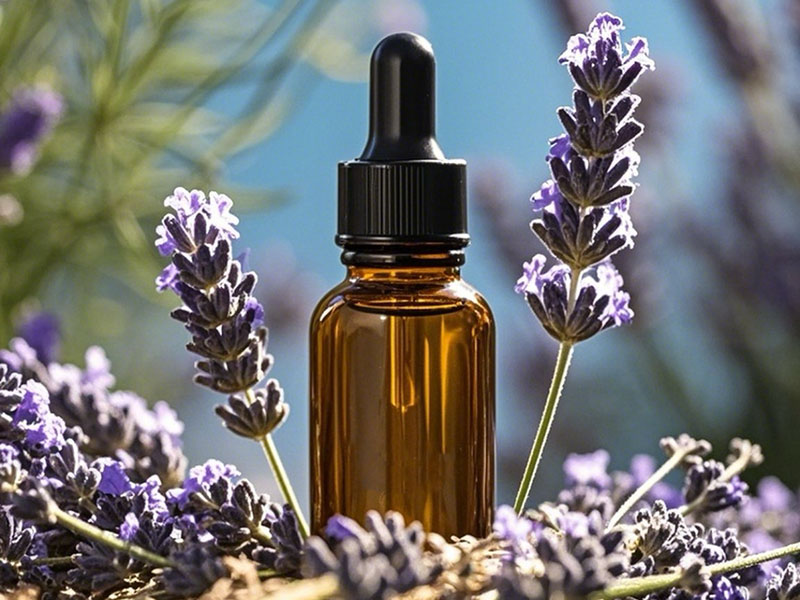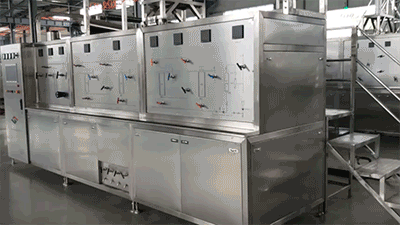Lavender essential oil has long been treasured in aromatherapy, cosmetics, and wellness. As scientific research progresses, its therapeutic value continues to expand, and demand grows across industries such as personal care, food and beverage, and pharmaceuticals.

The global lavender essential oil market is experiencing steady growth and is expected to surpass USD 1 billion by 2025. With the rising demand for “natural, safe, and traceable” botanical extracts, the extraction method has become a key differentiator for premium brands.
Market Value of Lavender Essential Oil
Lavender (Lavandula angustifolia) is a perennial herb native to the Mediterranean. Its extract, lavender essential oil, is widely appreciated for its unique aroma and multifunctionality. It is frequently used in:
- Aromatherapy – Reduces stress and improves sleep
- Cosmetics & skincare – Antibacterial, calming, and oil-balancing
- Medical and wellness – Helps with anxiety, mild pain, and inflammation
- Home fragrance – Diffusers, candles, sprays
Comparison of Main Extraction Methods
1. Steam Distillation
This traditional method uses steam to break plant cells and release volatile oils.
Pros:
- Well-established and cost-effective
- Suitable for industrial-scale production
Cons:
- High temperatures can destroy heat-sensitive compounds
- Sensitive to raw material variations (origin, drying, etc.)
- Produces relatively simple aroma profiles
2. Solvent Extraction
Organic solvents like ethanol or hexane extract aromatic compounds, later separated to produce lavender absolute.
Pros:
- Richer fragrance and better longevity
- Captures fat-soluble compounds missed by steam
Cons:
- Possible solvent residues – unsuitable for food or medicinal use
- Complex equipment and environmental concerns
3. Supercritical CO2 Extraction
This method pressurizes CO2 above 31.1°C and 73.8 bar to reach a “supercritical state” where it behaves like both a gas and a liquid. It gently and efficiently extracts essential oil components without degrading heat-sensitive compounds.
Advantages:
- Low temperature preserves delicate components like linalool and linalyl acetate
- No solvent residue, suitable for organic and pharmaceutical applications
- High yield and rich aroma profile
- Tunable process by adjusting pressure and temperature
Challenges:
- Higher initial equipment investment
- Requires professional technical management
Ideal For: High-end skincare, pharmaceuticals, fine fragrances, functional wellness products
Key Factors Affecting Lavender Oil Quality
| Factor | Details |
| Plant Variety | Lavandula angustifolia is preferred for highest oil content and scent quality |
| Harvest Time | Peak bloom (mid-July); early morning harvest retains more aroma |
| Drying Method | Air dry in shade to prevent oxidation and degradation |
| Equipment Material | Use food-grade SS316L stainless steel for safety and purity |
| Storage Conditions | Store in sealed, dark, cool places to maintain potency |
Supercritical CO2 Extraction Process for Lavender Oil
What is Supercritical CO2 Extraction?
Supercritical CO2 extraction is a cutting-edge, green separation technology. CO2 in its supercritical state offers excellent penetration and solubility, enabling selective extraction of active compounds from lavender at mild temperatures.

Lavender essential oil extraction process workflow
1. Raw Material Preparation
- Choose high-quality dried lavender harvested at 50%-70% bloom.
- Dry naturally in the shade to preserve ester compounds.
- Adjust moisture content to 8–12% to avoid pipeline blockage or reduced yield.
- Grind to 40–60 mesh size—fine enough for surface contact, but not so fine to clog the system.
2. Loading into the Extraction Vessel
- Fill the SS316 extraction vessel loosely to maintain good CO₂ flow.
- Avoid over-packing to prevent flow resistance.
3. Dynamic Extraction Phase
| Parameter | Recommended Range |
| Temperature | 35°C – 45°C |
| Pressure | 250 – 350 bar |
| CO₂ Flow Rate | 15–25 kg/h |
| Extraction Time | 1.5 – 3 hours |
- Penetration Phase (0–60 min): Extracts low-molecular-weight terpenes
- Main Phase (60–180 min): Targets esters and alcohols
- Late Phase (>180 min): Extracts waxes—may be optional
4. Separation & Recovery
- Extract enters separator; adjust conditions to isolate oil from CO2.
- CO2 is recycled for reuse.
- Set the separator temp between 45–55°C to avoid crystallization.
5. Essential Oil Collection
- Yields pure, concentrated lavender oil with no need for distillation or solvent removal.
- Transparent, rich aroma; ideal for luxury products.
Advantages of CO2 Extraction
- Preserves key actives: linalool, linalyl acetate, geraniol
- Residue-free and eco-friendly
- Selective and tunable for specific compounds
- High automation and consistent quality
- CO2 is recyclable—low long-term costs
Best Practices & Precautions
- Moisture Control: Keep material at 8–10% moisture
- Parameter Optimization: Avoid overpressure to prevent wax contamination
- System Sealing: Regularly inspect valves and seals
- Cleaning & Maintenance: Clean system every 3–5 cycles
- Efficient Cooling: Maintain chiller temp at 5–10°C for effective CO₂ recovery
Frequently Asked Questions (FAQ)
Q1: Is supercritical CO2 extraction expensive?
A: Initial investment is higher, but high yield, purity, and minimal post-processing make it cost-effective long-term. We offer flexible payment plans and small-scale systems.
Q2: How is CO2-extracted lavender oil different from steam-distilled?
A: It contains a broader spectrum of aromatic compounds, including non-volatile components like squalene and phytosterols. The scent is richer and more natural—perfect for luxury applications.
Q3: Is the system difficult to operate?
A: Not at all. Our systems include Siemens PLC automation, touchscreen control, remote monitoring, and full training. Typically, only 1–2 operators are needed.
Q4: What’s included in a full CO2 extraction setup?
A: It includes an extraction vessel, storage tanks, filtration units, a CO2 booster pump, pressure regulators, a chiller, recovery units, and a central control console. Custom configurations are available.
How We Support Your Lavender Oil Business
BIT is a high-tech enterprise specializing in R&D, manufacturing, and total solutions for supercritical CO2 extraction systems. Our equipment is trusted across Europe, Southeast Asia, and North America.
We provide:
- Customized CO2 extraction system (10L~500L+)
- Free sample testing and formula suggestions
- Automated control and remote operation and maintenance support
- One-stop delivery and full-cycle after-sales
Please contact us for free technical solutions
Whether you are a startup brand preparing to enter the essential oil field or a mature enterprise pursuing high-end quality upgrades, we are willing to be your partner from source to market. [Contact Us]